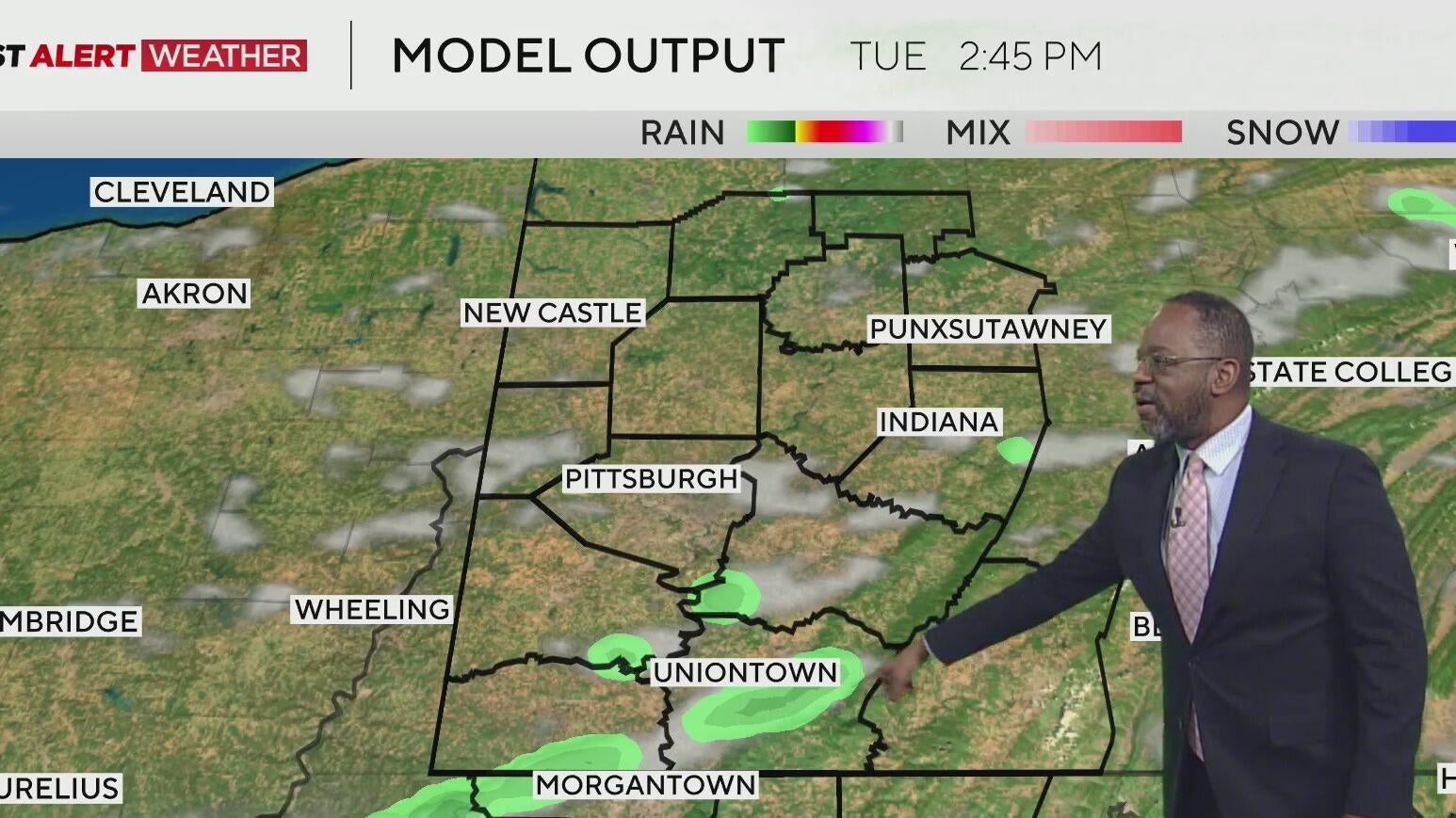Northeast
Sen Collins makes stance on trans athletes in women's sports clear as Maine bucks Trump's executive order
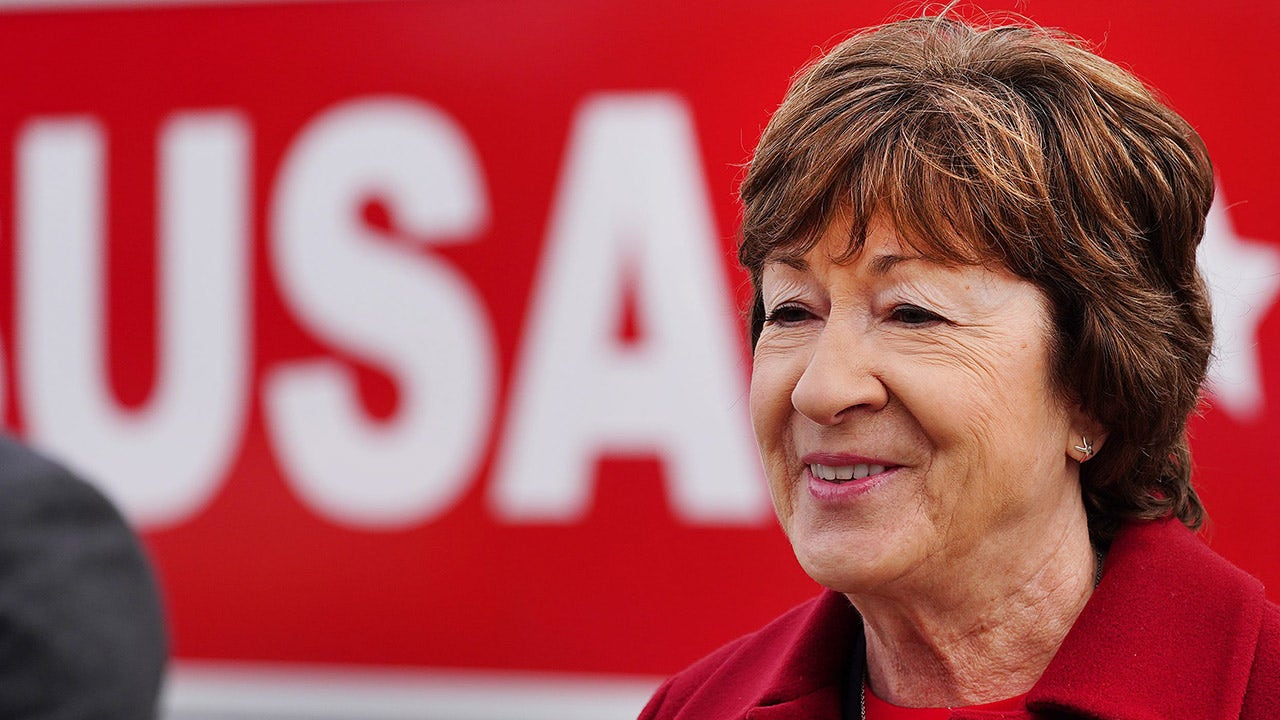
Sen. Susan Collins, R-Maine, made her stance clear on whether transgender athletes should compete in girls’ and women’s sports on Monday.
Collins said in a statement obtained by Fox News Digital that a Maine state law that allows biological males to compete against girls and women is the antithesis to the “spirit and intent of Title IX.”
Sen. Susan Collins (Rich Beauchesne/Seacoastonline)
“I believe that the State of Maine is under scrutiny because of the state law that allows biological males to play in girls’ sports. And that is contrary, not just to the President’s executive order, but what I believe is the very spirit and intent of Title IX, which was to provide sports and other athletic activities to girls in a safe and fair way,” Collins wrote.
The state refused to comply with President Donald Trump’s executive order to keep biological males from competing in girls’ and women’s sports. The Health and Human Services Department’s Office of Civil Rights referred the state’s “noncompliance with Title IX” to the Justice Department on Friday.
“It is critically important to treat people who are transgender with respect and dignity. But that does not change the fact that Title IX, which was passed in 1972, has greatly expanded opportunities for girls and young women to participate in organized sports at the high school and college levels,” Collins added. “It did so, in part, by mandating equal access to athletic resources and facilities on the basis of sex – not on the basis of gender identity. Safe and fair athletic competition has been one of the keys to the success of Title IX. That is why I do not believe that transgender athletes should compete in girls’ and women’s athletics.
“I will continue to advocate for Maine to receive its fair share of federal funding, something I have done successfully so far, but I support the original intent behind Title IX.”
Maine school officials explained why they refused to comply with Trump’s executive order on Monday.
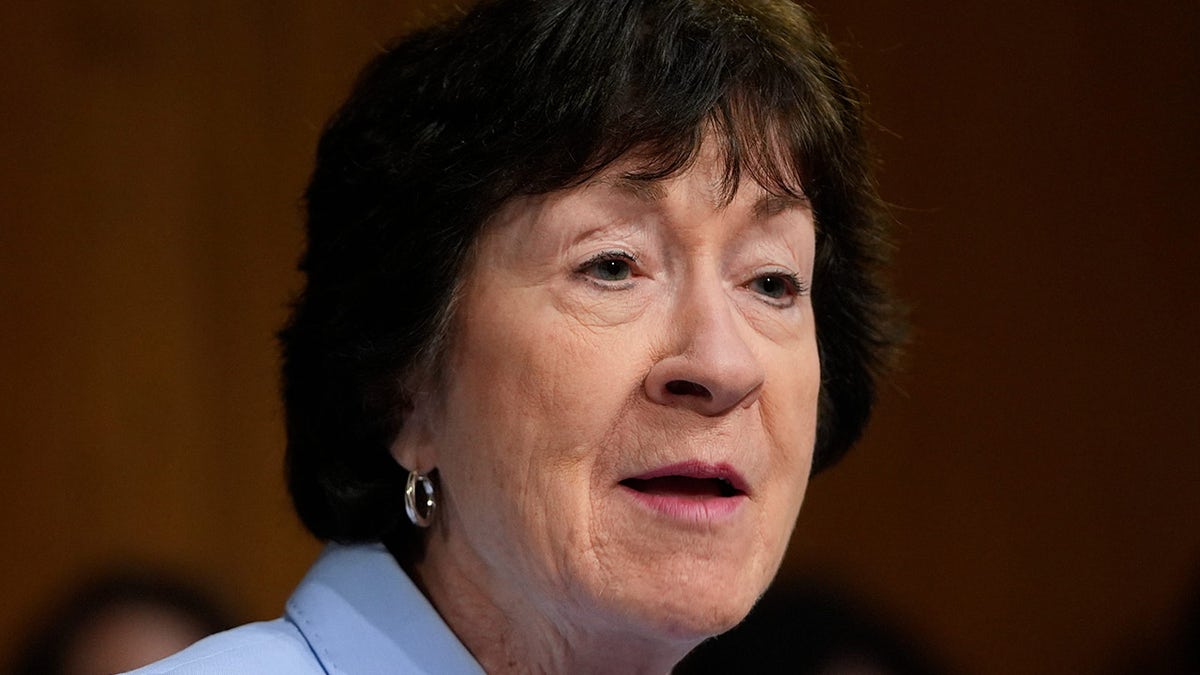
Sen. Susan Collins (IMAGN)
“The Maine Principals’ Association is bound by the law, including the Maine Human Rights Act (MHRA), which our participation policy reflects,” officials wrote. “We are unable to sign any resolution agreement that would mandate we create a new policy that would violate the law and MHRA.
“As such, we have not signed and will not sign the resolution agreement sent by the Federal Department of Health and Human Services. With respect to the Federal Department of Education, Office of Civil Rights, resolution agreement, we were not a direct recipient of that agreement, so we are not required to respond.”
MAINE SCHOOL OFFICIALS EXPLAIN WHY STATE WAS IN ‘NONCOMPLIANCE WITH TITLE IX’ AFTER REFERRAL TO DOJ
Maine School Administrative District 51 also pointed to the Maine Human Rights Act.
“The MSAD #51 Board of Directors is guided by the Mission, Vision, and Core Values of our district. This includes promoting a safe, caring and ethical learning environment where each person will be treated with respect and fairness; and individuals are recognized, valued and supported,” its letter reads.
“To our students: Thank you for your maturity, perseverance, and dedication to learning through these distractions. Please continue to lead the way.
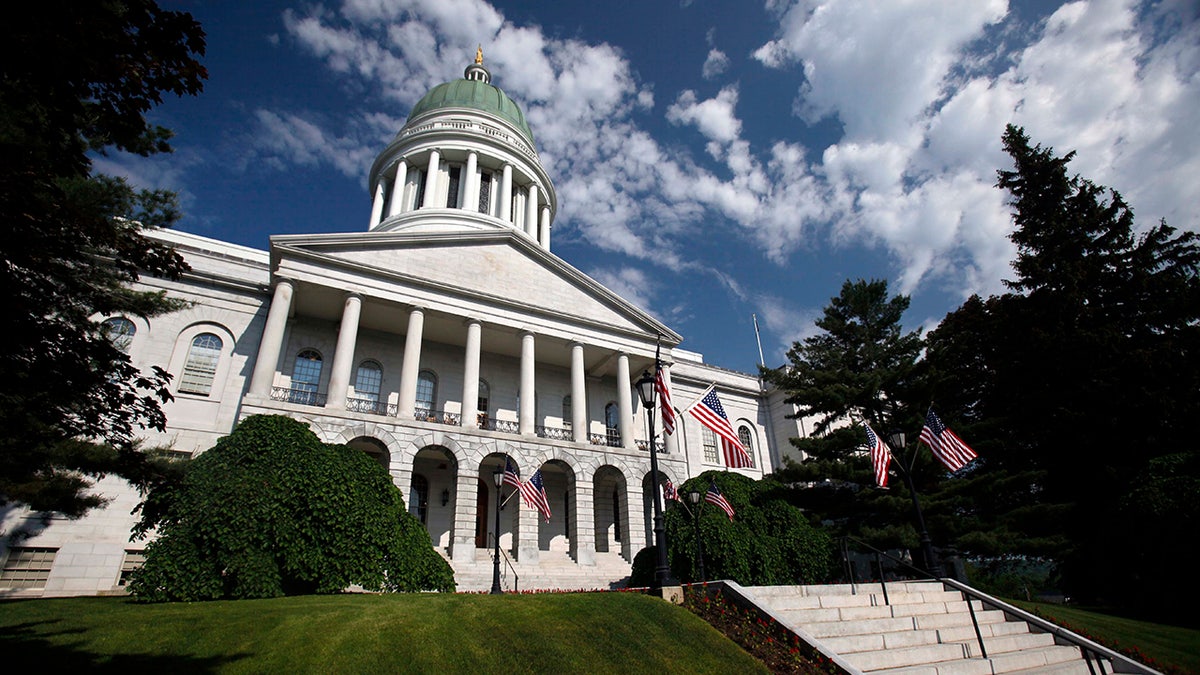
The Maine State House (AP Photo/Robert F. Bukaty/File)
“To our teachers and staff: We deeply appreciate your unwavering commitment to our students. Your dedication makes a profound impact, and we are grateful for your resilience and compassion. Please note that no Board policies have changed at this time. We encourage you to continue supporting every student, socially and academically, as you always have.”
The Maine Human Rights Act was amended four years ago to add gender identity as a protected class and specifically stated that denying a person an equal opportunity to participate in sports is discrimination against education. The Maine Principals’ Association updated its policy to allow athletes to compete against the gender they identify as last year.
A University of New Hampshire poll released Thursday showed that 64% of Maine residents believe transgender athletes “definitely should not” or “probably should not” participate in girls’ and women’s sports. Only 29% of Maine residents believed that transgender athletes “probably should” or “definitely should” compete against girls and women in sports.
Maine Gov. Janet Mills, Maine Attorney General Aaron Frey and Maine’s Education Department have not responded to requests for comment.
Fox News’ Julia Johnson and CB Cotton contributed to this report.
Follow Fox News Digital’s sports coverage on X and subscribe to the Fox News Sports Huddle newsletter.
Read the full article from Here

Boston, MA
Red Sox Host Drag Show Inside Fenway Park For Pride Night, Invite Drag Queens On Field For First Pitch Again

The Red Sox welcomed drag queens to Fenway Park as part of their traditional Pride Night.
The Boston Red Sox hosted their annual Pride Night on Monday and continued their tradition of hosting a drag show inside the gates of Fenway Park while also welcoming drag queens onto the field for the ceremonial first pitch.
Ahead of what was a 10-8 loss to the Tampa Bay Rays on Monday night, fans of all ages entered the gates of the historic ballpark and were greeted by a drag show on a stage built right in front of some of the concessions.
The Red Sox and their Pride-themed logo on X shared a video of various men dressed in drag dancing for fans before the first pitch of the contest.
Speaking of the first pitch, the drag queens who participated in the show, as well as individuals representing various LGBTQ+ causes and organizations in Boston, were welcomed onto the diamond with the stadium’s announcer urging fans in attendance to applaud them.
“We know that visibility and inclusivity in sports not only affirm the right of everyone to participate and along, but also enrich the spirit of competition and camaraderie,” the announcer said over the stadium’s loudspeakers.
“When teams, front offices, and fans come together to create welcoming environments, everyone can thrive and we prove that we are all better when we stand together.”
The Boston Legacy Football Club of the NWSL, the Boston Fleet of the PWHL, Boston Common Golf, the Boston Bruins, and Boston Celtics were all mentioned as having representatives on the field for the ceremonial first pitch.
The Red Sox have welcomed drag queens to Fenway Park for their annual Pride Night dating back to at least 2022, according to archived Getty Images.
A pre-game ceremony is held in recognition of Pride Heritage before a game between the Boston Red Sox and the Oakland Athletics on June 15, 2022. (Photo by Billie Weiss/Boston Red Sox/Getty Images)
The Red Sox promoted Pride Night leading up to the game with an exclusive ticket purchasing offer where fans would receive a Red Sox hat in Pride colors while also inviting them to attend a Pride Party – presumably the drag show – inside Fenway Park prior to the game starting.
Pittsburg, PA
“Feel-good” weather set to return to Pittsburgh area Tuesday

Storm crews will be out Tuesday morning surveying what could be the area’s 11th tornado of the year so far in Clarion Township.
Daily average High: 78 | Low: 58
Sunrise: 5:50 a.m. Sunset: 8:51 p.m.
Any Alert Days Ahead: None for now. There will be storm chances in place for the weekend.
The worst damage being reported in Clarion County is an aluminum shed that was reportedly flipped and is sitting on its roof. Route 22 was briefly blocked by debris.
Pictures of the broken shed were shared on Facebook. Several trees were also reported downed by debris.
Photo Credit: Brett Whitling, Clarion County Department of Public Works
Brett Whitling from the Clarion County Department of Public Works caught the aftermath of the storm that toppled a tree onto a garage in Clarion Township. The homeowner also took a picture of what appears to be a wall cloud just before the trees were snapped.
We won’t deal with anything like that on Tuesday, with calmer and more comfortable weather moving into our area. Highs will hit the mid-70s with very low humidity levels.
KDKA-TV Weather Center
It will be a little breezy, with winds coming in from the west this afternoon at around 10-15 mph. Skies would normally be sunny after 8 a.m., but a plume of Canadian smoke will also be moving through, so skies will be hazy at best and overcast at worst. Air quality is not expected to be significantly impacted, as the plume is expected to remain mostly above ground level.
Wednesday and Thursday will be just as comfortable, with our next rain chance coming on Friday afternoon.
The U.S. Open third and final rounds may be impacted by rain, though, with scattered rain around both Saturday and Sunday.
KDKA-TV Weather Center
WEATHER LINKS:
Current Conditions | School Closings & Delays | Submit Your Weather Photos
Connecticut
Rare ‘Mushroom House’ hits CT real estate market for $1.5M. See Zillow Gone Wild tour

Watch what happened as The Broken Crust is featured on ABR Roadshow
America’s Best Restaurants Roadshow stopped in Putnam to feature The Broken Crust. Take a look at what happened while they were there.
- The home, called “Starcastle” but known to locals as “The Mushroom House,” has a bumpy, white outside with mushroom-like domes on several parts of the house.
- It is on sale for $1,500,000.
- Instagram users loved the view, but not the mushroomy look.
A Connecticut home for sale was featured on the social media account Zillow Gone Wild in June for its unique, mushroom-like appearance.
The home, called “Starcastle” but known to locals as “The Mushroom House,” has a bumpy, white outside with mushroom-like domes covering several sections of the house.
Now, you can buy this ‘trippy’ home for $1,500,000.
Why is it called the Mushroom House?
The home was designed by architect Roy Mason in 1985 for Ed Roman, the owner of Las Vegas’ Ed Roman Guitars and Danbury’s Eastcoast Music Mall, according to Zillow Gone Wild.
Rather than being a square or rectangle shape like many houses, the Mushroom House is rounded and lumpy, as if covered by bubbling white cement.
One particularly prominent column looks especially like a mushroom, but mushroom-cap-like domes cover several different sections of the house.
The listing, held by Lisa Weisenberger of Luks Reality, says that this is a “a once-in-a-generation opportunity to own one of Connecticut’s most iconic homes.”
“A home this rare doesn’t just make memories—it builds them,” it adds.
How many bedrooms and bathrooms does it have? Other features?
The 5,036 square foot Mushroom House has four bedrooms and five bathrooms.
Zillow Gone Wild points out special features like a sunken conversation pit, an open concept living room with a “landing/DJ area/chill zone” above and wide windows in many of the rooms that allow those inside to take in the panoramic vistas.
Outside, there’s a pool, a gazebo and a large smiley face.
In addition to a private home, the listing says the property has potential to be an Airbnb, a wedding venue or an “unforgettable weekend escape.”
Where is the Zillow Gone Wild CT mushroom house?
The Mushroom House can be found at 155 Shortwoods Rd. in New Fairfield, Connecticut.
It is located between two state parks, Squantz Pond State Park and Pootatuck State Forest, giving it expansive views. It overlooks Squantz Pond and Candlewood Lake in addition to the protected parklands.
It has 23.5 acres of private land, with woods, sculpted gardens and a pool.
The home is 71 miles from New York City.
“This property feels like its own private kingdom—yet remains just a short, scenic drive from NYC,” says the listing.
Instagram users ask, is the view worth the house’s ugliness?
Instagram users loved the view, but not the mushroom-y look. Some compared it to ant hill, while others referred to it as “Tatooine.”
“I’m trying to decide if the view is worth living in that monstrosity,” said Ashley Govea, or user @mrsgovea10. “The fact that I’m confused speaks volumes to how good that view is.”
“The best thing about this house is the view,” said Judy, @btwimjudy.
“I really love weird houses but I couldn’t live in that,” said Judy Kepes, @judykepes.
-

 Politics1 week ago
Politics1 week agoMichelle Obama facing backlash over claim about women's reproductive health
-

 Finance1 week ago
Finance1 week agoHere's what will boost your feeling of financial well-being the most, researchers say
-

 West3 days ago
West3 days agoBattle over Space Command HQ location heats up as lawmakers press new Air Force secretary
-

 Technology1 week ago
Technology1 week agoWhy do SpaceX rockets keep exploding?
-

 World1 week ago
World1 week agoTwo killed in Russian attacks on Ukraine before possible talks in Turkiye
-

 World1 week ago
World1 week agoNcuti Gatwa Bids Doctor Who Farewell as Finale Ends With a Most Surprising Twist — Grade It!
-
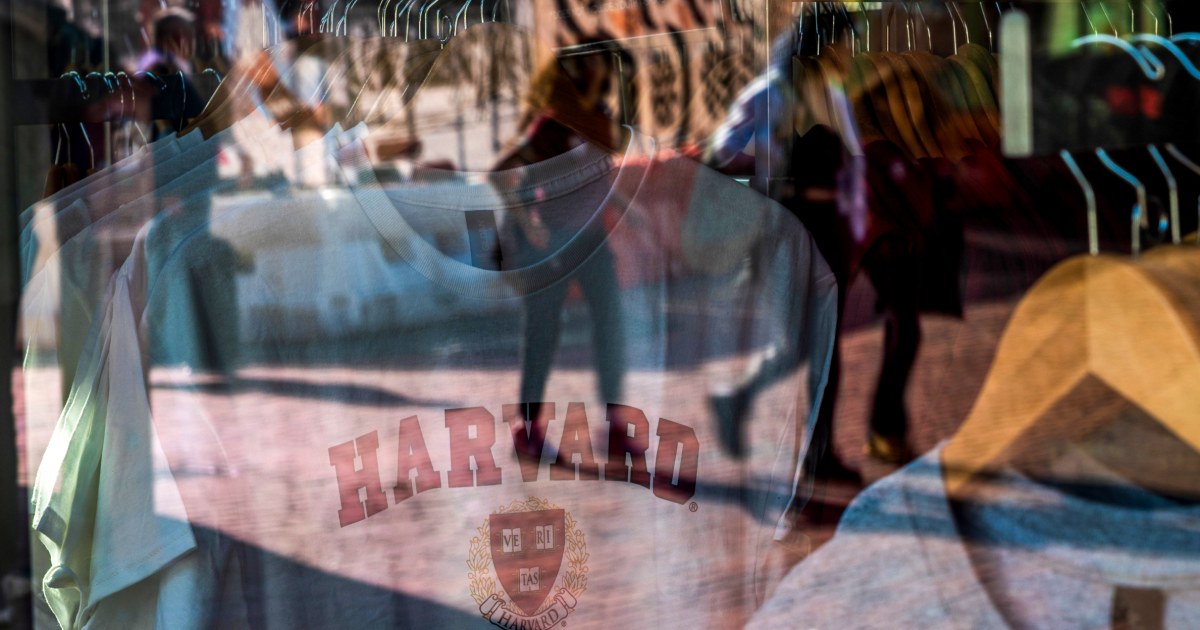
 News1 week ago
News1 week agoTrump administration continues to target international students. What to know and what could be next.
-
Vermont1 week ago
MMU’s Bea Molson returns to glory, CVU girls claim doubles at tennis championships
